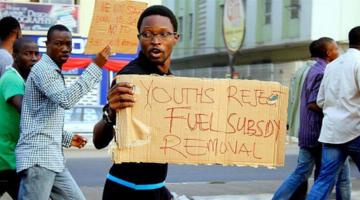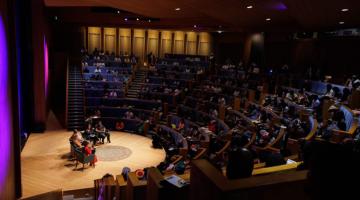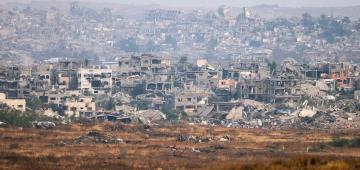BAR Book Forum: Kerry Chance’s “Living Politics in South Africa’s Urban Shacklands”
Repression of the poor in South Africa has resulted in the criminalization of the very forms of struggle that made the democratic transition possible.
“In South Africa, ‘slum’ and state yet again have been set against one another.”
In this series, we ask acclaimed authors to answer five questions about their book. This week’s featured author is Kerry Ryan Chance. Chance is Associate Professor in the Department of Social Anthropology at the University of Bergen. Her book is Living Politics in South Africa’s Urban Shacklands.
Roberto Sirvent: How can your book help BAR readers understand the current political and social climate?
Kerry Chance:More than twenty years after the fall of apartheid, South Africa remains one of the world’s most unequal societies. Dissatisfaction with the slow pace of social and economic change has been consistently expressed through street protests and labor strikes, as well as xenophobic pogroms. Living Politics in South Africa’s Urban Shacklands (The University of Chicago Press, 2018) focuses on those who still struggle to make life viable and secure in South Africa’s major cities. Based on over a decade of research in Cape Town, Durban, and Johannesburg, my book analyzes the criminalization in recent decades of popular forms of politics that were foundational to South Africa’s celebrated democratic transition. I argue that, as the lines between ‘the criminal’ and ‘the political’ have become blurred in public discourse and through everyday interactions, “slum” and state yet again have been set against one another. My book illustrates how residents of urban townships and shack settlements come to inhabit political roles, engage the law, and practice politics in emergent liberal orders.
What do you hope activists and community organizers will take away from reading your book?
While much has been written on post-apartheid social movements in South Africa, most discussion centers on ideal forms of movements, disregarding the reality and agency of activists themselves. By focusing on the lived practices of post-apartheid activists, rather than the external, idealistic commentary of old, we may better grasp the challenges and possibilities of contemporary political mobilization.
We know readers will learn a lot from your book, but what do you hope readers will un-learn? In other words, is there a particular ideology you’re hoping to dismantle?
I aim to probe normative assumptions about what counts as “politics.” Western democratic theory rests on the foundational principle that all citizens have an equal share in political life. In contemporary South Africa, the legacies of colonialism and racial segregation, along with climate change and economic inequality, test that very foundation. I approach political life as not merely defined by the laws, policies, and decisions of state-sanctioned agents, but by everyday practices and interactions among ordinary citizens. My emphasis is upon the importance of ordinary people’s lives, knowledge, language, and humanity.
Who are the intellectual heroes that inspire your work?
The book engages authors that residents of townships and shack settlements were engaging at the time of my research. These authors include Frantz Fanon, C.L.R. James, and Steve Biko.
In what way does your book help us imagine new worlds?
My book begins with the following questions: What politics is possible for—and created by—the world’s most disenfranchised communities? How do communities enact sovereign claims, catalyze mobility across borders and boundaries, secure conditions for work and social reproduction, forge new engagements with the material world, or even imagine wholly other horizons for our world?
To examine these questions, the book is structured by a ‘politics of living.’ Residents refer to eventful public dramas, including street protests and court cases, as well and day-to-day activities of community building, such as occupying land, constructing shacks, and illicitly connecting to water and energy infrastructure as living politics, or ipolitiki ephilayo in the isiZulu. Living politics is premised upon a collective self-identification of “the poor” that cuts across historically “African,” “Indian,” and so-called “Coloured” (or mixed race) communities. As governance increasingly is managed by a globalized private sector, living politics borrows practices of the liberation struggle, as well as from the powers invested in emerging technologies and the recently desegregated courts. Protests by “the poor,” as I demonstrate, have arisen not merely in reaction to the failure of the state to provide infrastructure, but also to the management of “slum” populations by means of forced evictions and police violence. Ultimately, living politics is about using everyday materials—fire, water, air, and land—to transform what it means to belong as a citizen.
Roberto Sirvent is Professor of Political and Social Ethics at Hope International University in Fullerton, CA. He also serves as the Outreach and Mentoring Coordinator for the Political Theology Network. He’s currently writing a book with fellow BAR contributor Danny Haiphong called American Exceptionalism and American Innocence: A People’s History of Fake News—From the Revolutionary War to the War on Terror.
COMMENTS?
Please join the conversation on Black Agenda Report's Facebook page at http://facebook.com/blackagendareport
Or, you can comment by emailing us at comments@blackagendareport.com



















